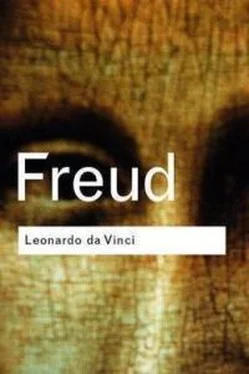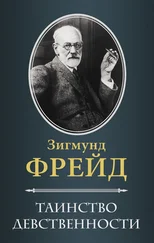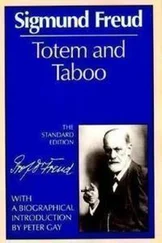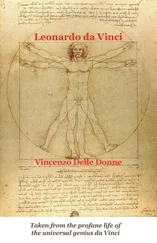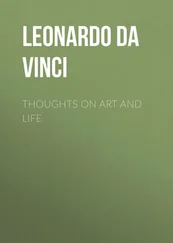Homosexual men who have started in our times an energetic action against the legal limitations of their sexual activity are fond of representing themselves through theoretical spokesmen as evincing a sexual variation, which may be distinguished from the very beginning, as an intermediate stage of sex or as "a third sex." In other words, they maintain that they are men who are forced by organic determinants originating in the germ to find that pleasure in the man which they cannot feel in the woman. As much as one would wish to subscribe to their demands out of humane considerations, one must nevertheless exercise reserve regarding their theories which were formulated without regard for the psychic genesis of homosexuality. Psychoanalysis offers the means to fill this gap and to put to test the assertions of the homosexuals. It is true that psychoanalysis fulfilled this task in only a small number of people, but all investigation thus far undertaken brought the same surprising results. [39] Prominently among those who undertook these investigations are I. Sadger, whose results I can essentially corroborate from my own experience. I am also aware that Stekel of Vienna, Ferenczi of Budapest, and Brill of New York, came to the same conclusions.
In all our male homosexuals there was a very intensive erotic attachment to a feminine person, as a rule to the mother, which was manifest in the very first period of childhood and later entirely forgotten by the individual. This attachment was produced or favored by too much love from the mother herself, but was also furthered by the retirement or absence of the father during the childhood period. Sadger emphasizes the fact that the mothers of his homosexual patients were often man–women, or women with energetic traits of character who were able to crowd out the father from the place allotted to him in the family. I have sometimes observed the same thing, but I was more impressed by those cases in which the father was absent from the beginning or disappeared early so that the boy was altogether under feminine influence. It almost seems that the presence of a strong father would assure for the son the proper decision in the selection of his object from the opposite sex.
Following this primary stage, a transformation takes place whose mechanisms we know but whose motive forces we have not yet grasped. The love of the mother cannot continue to develop consciously so that it merges into repression. The boy represses the love for the mother by putting himself in her place, by identifying himself with her, and by taking his own person as a model through the similarity of which he is guided in the selection of his love object. He thus becomes homosexual; as a matter of fact he returns to the stage of autoerotism, for the boys whom the growing adult now loves are only substitutive persons or revivals of his own childish person, whom he loves in the same way as his mother loved him. We say that he finds his love object on the road to narcism, for the Greek legend called a boy Narcissus to whom nothing was more pleasing than his own mirrored image, and who became transformed into a beautiful flower of this name.
Deeper psychological discussions justify the assertion that the person who becomes homosexual in this manner remains fixed in his unconscious on the memory picture or his mother, By repressing the love for his mother he conserves the same in his unconscious and henceforth remains faithful to her. When as a lover he seems to pursue boys, he really thus runs away from women who could cause him to become faithless to his mother. Through direct observation of individual cases we could demonstrate that he who is seemingly receptive only of masculine stimuli is in reality influenced by the charms emanating from women just like a normal person, but each and every time he hastens to transfer the stimulus he received from the woman to a male object and in this manner he repeats again and again the mechanism through which he acquired his homosexuality.
It is far from us to exaggerate the importance of these explanations concerning the psychic genesis of homosexuality. It is quite clear that they are in crass opposition to the official theories of the homosexual spokesmen, but we are aware that these explanations are not sufficiently comprehensive to render possible a final explanation of the problem. What one calls homosexual for practical purposes may have its origin in a variety of psychosexual inhibiting processes, and the process recognized by us is perhaps only one among many, and has reference only to one type of "homosexuality." We must also admit, that the number of cases in our homosexual type which shows the conditions required by us, exceeds by far those cases in which the resulting effect really appears, so that even we cannot reject the supposed coöperation of unknown constitutional factors from which one was otherwise wont to deduce the whole of homosexuality. As a matter of fact there would be no occasion for entering into the psychic genesis of the form of homosexuality studied by us if there were not a strong presumption that Leonardo, from whose vulture–phantasy we started, really belonged to this one type of homosexuality.
As little as is known concerning the sexual behavior of the great artist and investigator, we must still trust to the probability that the testimonies of his contemporaries did not go far astray. In the light of this tradition he appears to us as a man whose sexual need and activity were extraordinarily low, as if a higher striving had raised him above the common animal need of mankind. It may be open to doubt whether he ever sought direct sexual gratification, and in what manner, or whether he could dispense with it altogether. We are justified, however, to look also in him for those emotional streams which imperatively force others to the sexual act, for we cannot imagine a human psychic life in whose development the sexual desire in the broadest sense, the libido, has not had its share, whether the latter has withdrawn itself far from the original aim or whether it was detained from being put into execution.
Anything but traces of unchanged sexual desire we need not expect in Leonardo. These point however to one direction and allow us to count him among homosexuals. It has always been emphasized that he took as his pupils only strikingly handsome boys and youths. He was kind and considerate towards them, he cared for them and nursed them himself when they were ill, just like a mother nurses her children, as his own mother might have cared for him. As he selected them on account of their beauty rather than their talent, none of them—Cesare da Sesto, G. Boltraffio, Andrea Salaino, Francesco Melzi and the others—ever became a prominent artist. Most of them could not make themselves independent of their master and disappeared after his death without leaving a more definite physiognomy to the history of art. The others who by their productions earned the right to call themselves his pupils, as Luini and Bazzi, nicknamed Sodoma, he probably did not know personally.
We realize that we will have to face the objection that Leonardo's behavior towards his pupils surely had nothing to do with sexual motives, and permits no conclusion as to his sexual peculiarity. Against this we wish to assert with all caution that our conception explains some strange features in the master's behavior which otherwise would have remained enigmatical. Leonardo kept a diary; he made entries in his small hand, written from right to left which were meant only for himself. It is to be noted that in this diary he addressed himself with "thou": "Learn from master Lucca the multiplication of roots." [40] Edm. Solmi: Leonardo da Vinci, German translation, p. 152.
"Let master d'Abacco show thee the square of the circle." [41] Solmi, 1. c. p. 203.
Or on the occasion of a journey he entered in his diary:
Читать дальше
